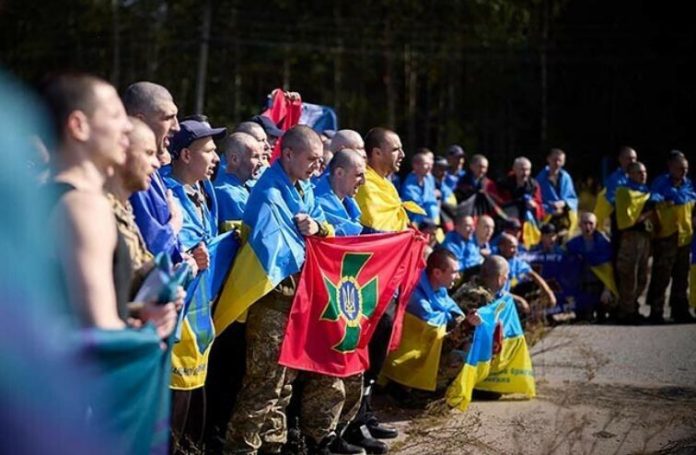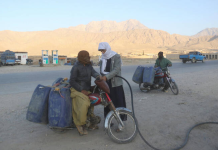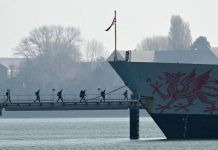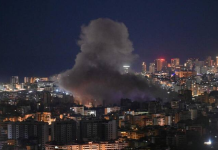Moscow and Kyiv swapped 103 prisoners of war each on Saturday in a deal brokered by the United Arab Emirates, a rare moment of coordination between the two warring sides as Russia pushes ahead in east Ukraine.
The Russians released in the swap were captured during Ukraine’s incursion into the Kursk region, Moscow said, while some of the Ukrainians freed had been held prisoner since Moscow seized the Azovstal steel plant in May 2022.
“Another 103 soldiers were returned to Ukraine from Russian captivity,” Ukrainian President Volodymyr Zelensky said on Telegram. Among the freed were 82 privates and sergeants as well as 21 officers, Zelensky said.
Russia confirmed it had “handed over” 103 Ukrainian army prisoners, and received 103 Russian servicemen captured by Kyiv in its Kursk offensive in return.
“At present, all Russian servicemen are on the territory of the Republic of Belarus, where they are being provided with the necessary psychological and medical assistance, as well as an opportunity to contact their relatives,” the Russian defence ministry said.
Despite ongoing hostilities, Russia and Ukraine have managed to swap hundreds of prisoners throughout the two-and-half-year conflict — often in deals brokered by the United Arab Emirates, Saudi Arabia or Turkey.
The announcement comes a day after Zelensky said 49 Ukrainian POWs had been returned from Russia, and three weeks ago both sides swapped 115 prisoners each in a deal also mediated by the UAE.
The UAE’s foreign ministry hailed the deal as a “success” and thanked both sides for their cooperation on Saturday.
Russian advances
The prisoner swap came as Russia pushed ahead in east Ukraine, where it claims to have captured a string of villages in recent weeks.
The Russian defence ministry said in a daily briefing it had “liberated” the village of Zhelanne Pershe, less than 30 kilometres from the key Ukrainian-held logistics hub of Pokrovsk.
Pokrovsk lies on the intersection of a key road that supplies Ukrainian troops and towns across the eastern front and has long been a target for Moscow’s army.
More than half of the city’s 60,000 residents have fled since the invasion began in February 2022, with evacuations ramping up in recent weeks as Moscow’s army closes in.
Ukraine had hoped its major cross-border incursion into the Kursk region last month would slow down Russia’s advances in the east.
On Friday, Zelensky said Moscow had been slowed down somewhat but conceded the situation on the eastern front was “very difficult”. Russia meanwhile claimed this week to have clawed back a swath of territory in the Kursk region, as it mounted what appeared to be a counter-offensive.
Missile spat
Tensions between Russia and the West over the conflict reached dire levels this week over UK and US discussions about letting Ukraine use longer-range weapons to strike targets inside Russia.
The discussions came after a visit to Kyiv by US Secretary of State Antony Blinken and British counterpart David Lammy.
President Vladimir Putin warned the West on Thursday that green-lighting the use of the long-range weapons deep inside Russia would put the Nato military alliance “at war” with Moscow.
“This would in a significant way change the very nature of the conflict,” Putin told a state television reporter. “It would mean that Nato countries, the US, European countries, are at war with Russia,” he added.
British Prime Minister Keir Starmer and US President Joe Biden on Friday delayed a decision on the move. US officials believe the missiles would make a limited difference to Ukraine’s campaign and also want to ensure that Washington’s own stocks of the munitions are not depleted.

















